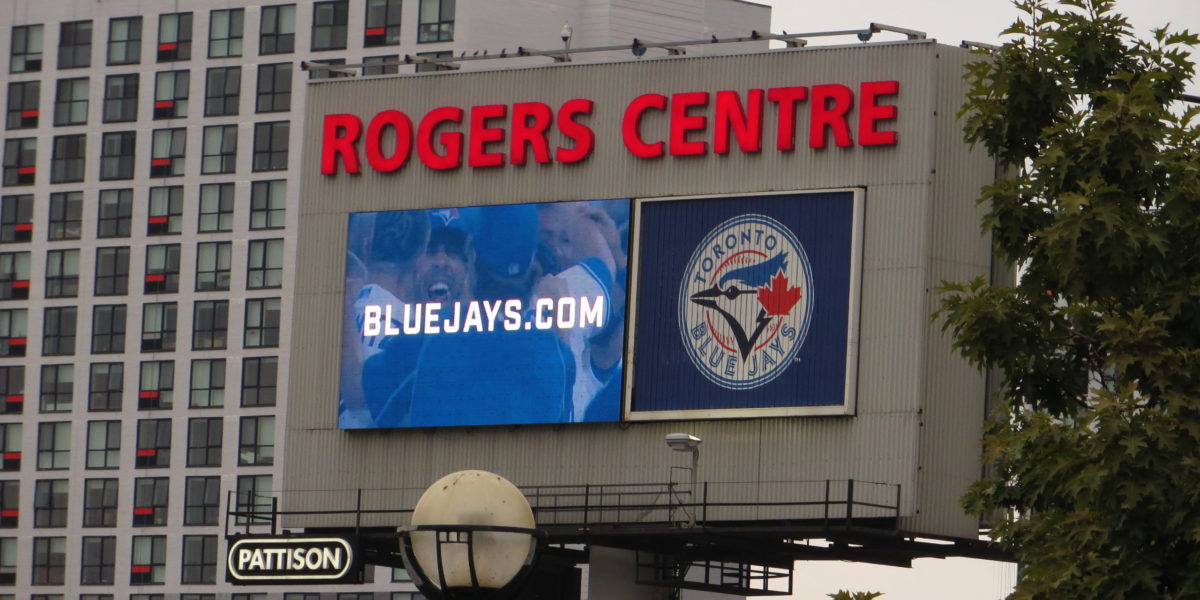Thousands of fans showed up to the Rogers Centre on Friday evening for a concert by chart-topper, The Weeknd, but 30 minutes before the show was scheduled to begin, it was cancelled.
Not because of weather or a plane delay—but an outage from a leading telecommunications company that wiped out digital services across the country.
The Rogers outage has renewed concerns about the telecom company’s $26 billion buyout of competitor Shaw Communications.
After meeting with telecom executives this week, the federal government announced new policies requiring all telecommunications providers to help preserve service to customers during future outages. The policies include offering emergency roaming service for rivals’ affected customers, as well as requirements for the public disclosure of outages. Telecom providers have 60 days to reach agreements with each other that covers these changes.
The move comes after calls from opposition parties to open an investigation into the widespread outages, which affected emergency services and payment processors across the country.
While Rogers intends to credit customers for last week’s disruption of services, the company is still moving full steam ahead on its merger with competitor Shaw Communications. The merger, which was announced last year, is currently working its way through the CRTC.
Merger will cost Canadians
For internet advocacy organization OpenMedia, the buyout will threaten thousands of jobs while making Canada’s telecom bills even more expensive.
“We knew folks would be opposed to seeing a Calgary-based company swallowed up by Rogers, but we were taken back by the strength of the opposition,” communications manager Rosa Addario said in a statement on Monday. “They’re scared to lose their jobs. At a time of record-high inflation, when families across the country are feeling the pinch, the last thing people in Alberta need to worry about is losing jobs and higher telecom prices.”
OpenMedia has been lobbying against the Rogers-Shaw deal since March 2021, when the merger was originally announced.
Since March 2021, community members from OpenMedia and other advocacy groups have spoken out 83,000 times to the federal government calling on policymakers to block the Rogers-Shaw deal. People across Canada concerned about giving even more power to Rogers after Friday’s outage can email their MPs and the Minister here. OpenMedia recently launched a new campaign in Alberta calling on MPs to voice their concerns over the jobs threatened by the buyout and ask minister of innovation, science and industry François-Philippe Champagne to block it.
Addario noted that there’s still time for the federal government to block the proposed merger, something she says will not only save jobs in Alberta, but save Canadians from the “fallout of this disastrous buyout.”
“No matter what Rogers says, this is a bad deal for Albertans,” Addario said. “Every version of Rogers-Shaw is bad for people, including splitting off Freedom Mobile. The bottom line will still be the same: thousands of Alberta jobs are still under threat, and our telecom bills are getting more expensive.”
Competition Bureau opposes merger
The country’s Competition Bureau has similar concerns. In May, the Bureau announced their plans to block the proposed merger, arguing that Shaw’s service innovations “have directly benefited consumers.”
The Bureau argues that the buyout would eliminate an independent, low-priced competitor while preventing future competition for wireless services like 5G. Additionally, the Bureau considers Shaw, which provides services to over two million customers in Canada, as Rogers’ closest competitor.
“[Shaw] was the first Canadian provider to eliminate data overage fees, the first to offer devices for free on term contracts, and the first and only provider to offer $0 phone plans with internet bundles,” the Bureau said in a release.
For Matthew Boswell, Commissioner of Competition, the merger would “substantially prevent or lessen competition in wireless services.”
“Eliminating Shaw would remove a strong, independent competitor in Canada’s wireless market – one that has driven down prices, made data more accessible, and offered innovative services to its customers,” Boswell said in May.
Speaking to reporters on Tuesday, minister Champagne talked about the “frustrations” associated with the widespread outage.
“I’ve demanded that [Rogers] take immediate initial steps to improve the resiliency of our network,” Champagne said. “This will be in addition to the CRTC inquiry to investigate the root cause of the failure and make additional recommendations about what we can do to improve the network resiliency in Canada.”
In a statement issued on Monday, NDP Leader Jagmeet Singh called the widespread outages both “deeply upsetting and unacceptable.”
Singh also called the industry minister’s meeting with Rogers a move to protect “the profits of telecom giants” rather than helping Canadians. He also wants Rogers to compensate small businesses for any revenue lost due to the outage.
“People need accountability here,” Singh said. “What happened was unacceptable.”
As far as Dr. Michael Geist is concerned, it was a disinterest in telecom policy that helped facilitate the Rogers outage.
In a Tuesday blog post, Geist, who serves as the Canada Research Chair in Internet and E-Commerce Law at the University of Ottawa, called last week’s events “a much-needed shock to the system that wakes Champagne and the government out of their policy slumber.”
“The Rogers-Shaw merger should be regarded as dead in the water,” Geist wrote. “If Canada is serious about more competition, removing a major competitor from the market simply can’t happen.”



